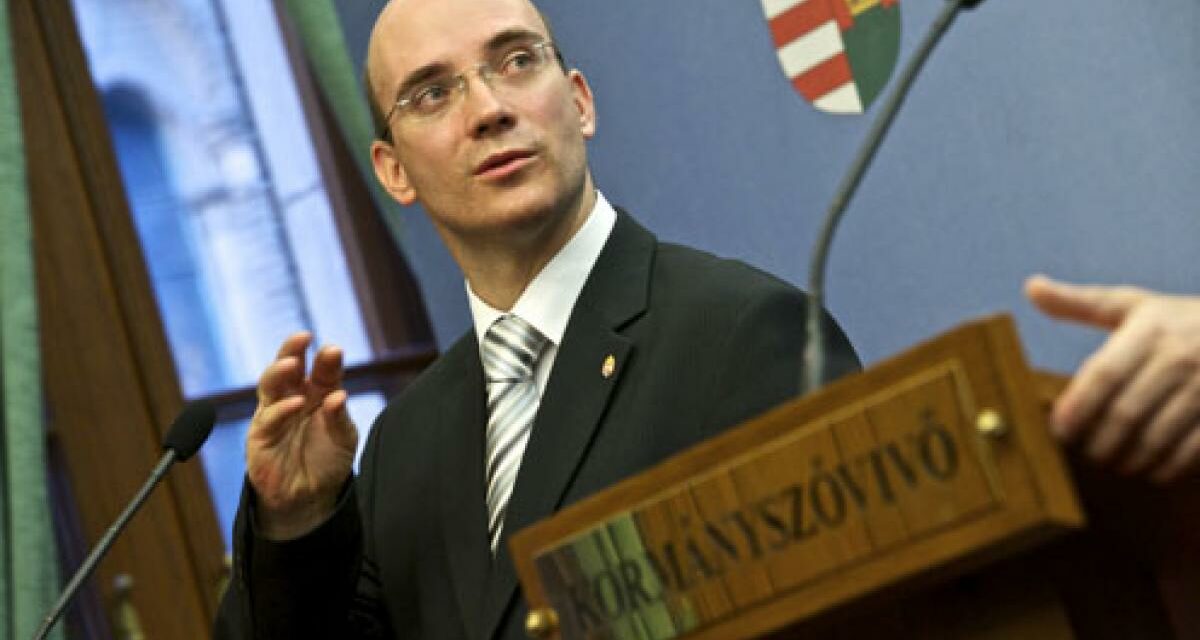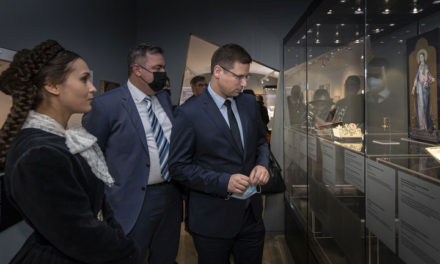Although the left is attacking the government, the teacher salary increase is constantly being worked out. The government will allocate HUF 1,200 billion from domestic and EU funds in equal proportions to raise teachers' salaries by 2025, announced Zoltán Maruzsa, State Secretary for Public Education at the Ministry of the Interior, on the opening day of the 24th National Conference of Public Education and Vocational Training Experts in Eger on Tuesday.
Zoltán Maruzsa pointed out: "the government also clearly sees that a significant wage increase is needed in the world of public education". It is a novelty that it is also possible to use EU funds for this in the 2021-2027 budget cycle, he added. This is necessary, as the cabinet's financial room for maneuver is limited, especially in the current overhead situation, when it is not yet clear how many thousand billion forints we will burn in the coming months on gas bills that did not have to be paid last year, he said.
According to the planning data of the Klebelsberg Center, taking current prices into account, the heating of schools alone could be up to HUF 225 billion more expensive than last year's HUF 26 billion, he noted. Therefore, in order to settle teacher salaries, it is necessary to involve EU subsidies in addition to national resources:
according to the plans, 50 percent of the domestic and EU budgets will be used for salary increases until 2025, the state secretary said. He indicated: for EU support, the government undertakes that the average salary of teachers will reach 80 percent of the average salary of graduates by this time, and will keep this ratio up until 2030. This rate has never been so high in Hungary's modern time calculation, he underlined.
Quantified, the target amount is HUF 777,000 compared to this year's average teacher salary of HUF 440,000, he said, adding: as a first step, this year's 10 percent increase can be calculated, followed by the already announced increases. Due to the higher proportion of cumulatively disadvantaged students and in the case of new teachers, the salary increase will be even higher, he informed.
Zoltán Maruzsa also touched on the fact that this also necessitates a new, more flexible, more performance-based wage regulation that supports the level of education and age. He explained: digitization, the promotion of social integration, the development of students with special educational needs, the launch of an internal retraining program and the transformation of the continuing education system will remain a priority public education goal.
László György, the state secretary responsible for innovation and higher education at the Ministry of Culture and Innovation (KIM), explained the Teach for Hungary program in his presentation: the aim of the initiative is to show the world outside their locality to those upper elementary school students who live further away from job opportunities.
Three years after the start of the program, today 17 universities, 110 elementary schools and 1,008 mentors deal with 4,227 children across the country, he listed. Further expansion of the network is important, as I would like to ensure that by 2030 every primary school student has a profession or, if their abilities allow, to continue their education, he stated. Since according to surveys, the number of students in need of mentoring can be increased to 10,000, this requires 2,500 mentors and an increase in the coverage of small settlements, he noted.
These children are also talented in something, and with sufficient patience, energy, love, attention, and maximum expertise, the mentors can help them develop their talent so that they can then find their place in life, he said.
Tamás Freund, the president of the Hungarian Academy of Sciences (MTA), emphasized in the introduction: the Hungarian Academy of Sciences is committed to the cause of public education. In his presentation entitled Our inner world and the effects of the information explosion on the development of creative thinking, he explained the structure and functioning of the human brain and talked about how our brain faces the information pressure that modern people encounter every day as a problem.
The information explosion and globalization give us less and less time and opportunity to involve our inner world, to have an emotional relationship, he emphasized. As an example, he mentioned internet browsing, which over time becomes aimless, loses motivation and can cause addiction.
In order for our brain to be able to fight these negative effects and support our creativity, we need to develop our inner world with activities that cause a cathartic experience, he underlined. Such are art education, sports, community-creating, value-creating activities, which can be used to enrich our inner, emotional world, thereby enabling effective learning and creative thinking, Tamás Freund pointed out.
Source : 888.hu
Featured image: OPH/Károly Árvay












